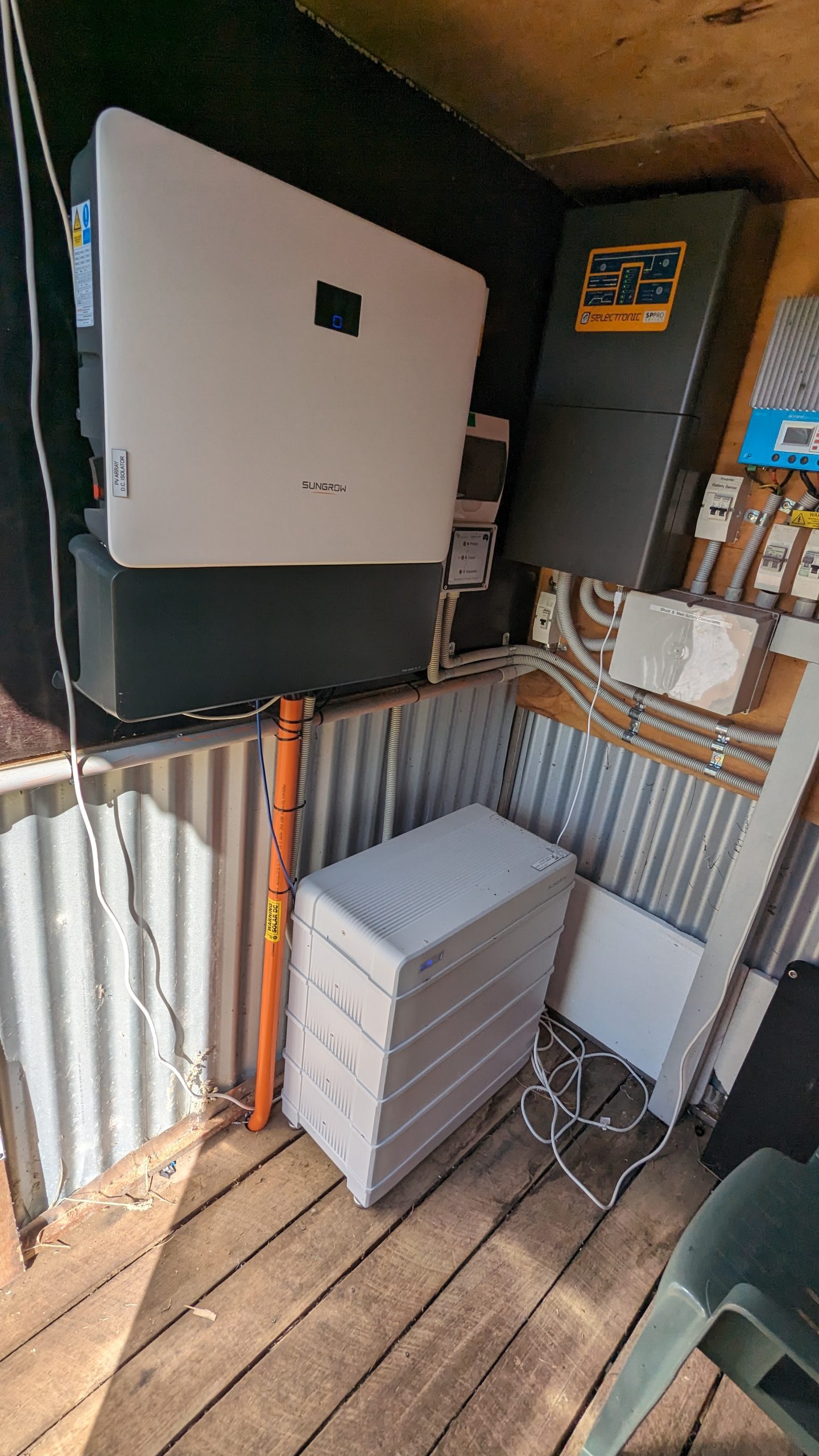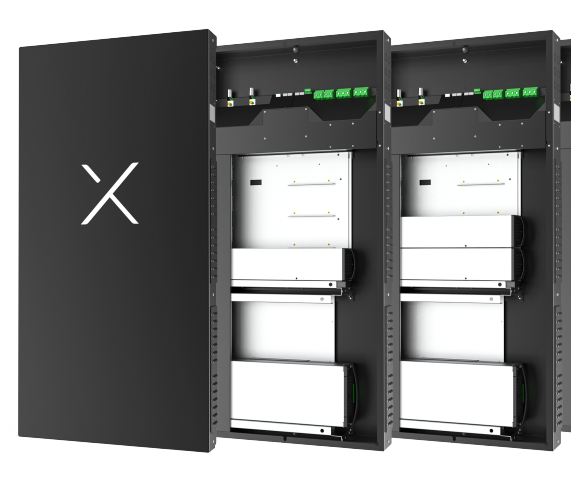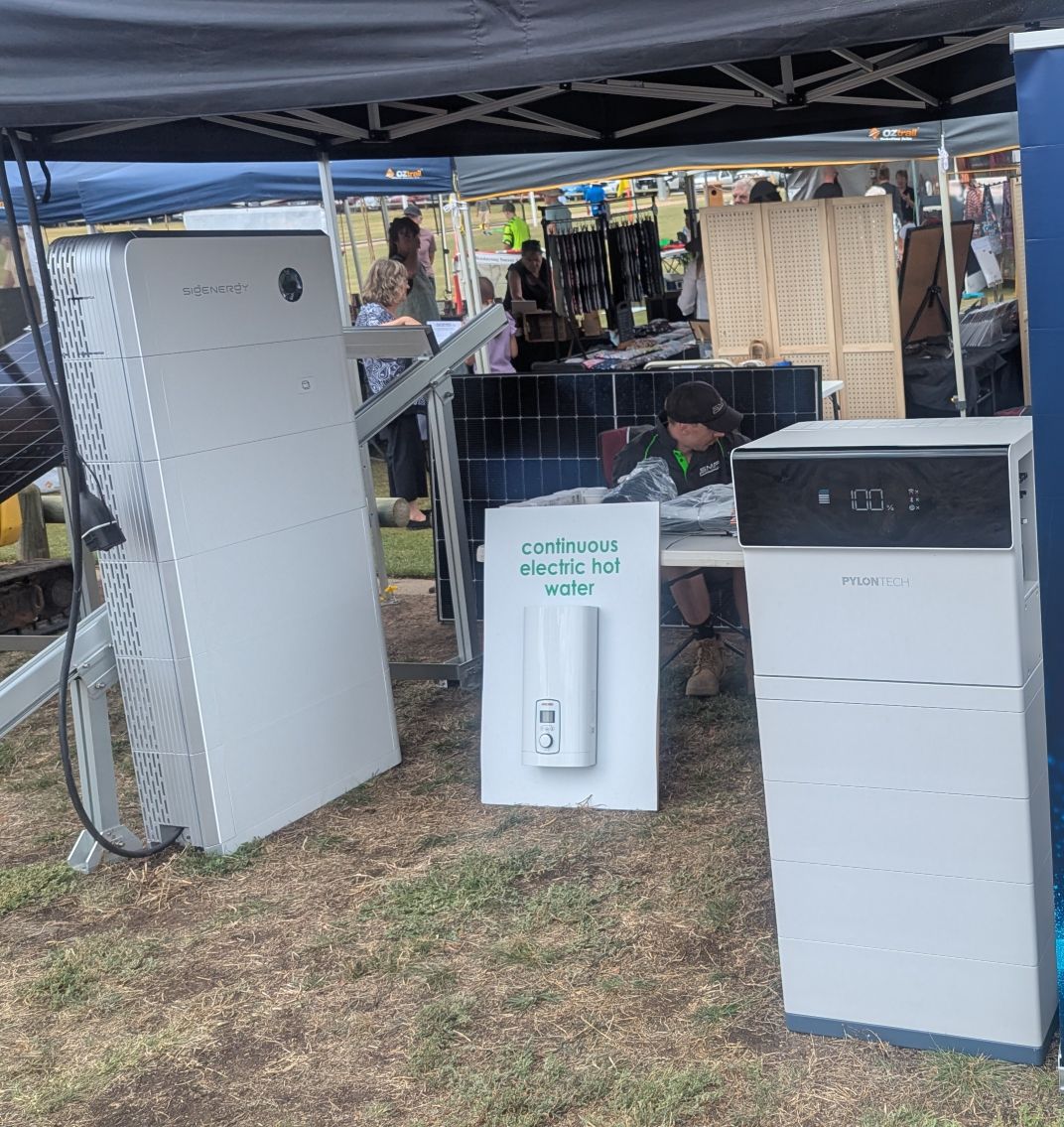
What is an Off-Grid Solar System? An off-grid solar system is a standalone power system that provides electricity independent of the main power grid. These systems are typically used in remote locations, where connecting to the main grid is impractical or too expensive. They are ideal for homes, farms, and even entire communities that seek self-sufficiency in energy.
Key Components of an Off-Grid Solar System:
- Solar Panels: The primary source of power generation, converting sunlight into electricity.
- Charge Controller: Regulates the voltage and current coming from the solar panels to prevent battery overcharging.
- Battery Bank: Stores the electricity generated by the solar panels for use during night or cloudy days.
- Inverter: Converts the stored DC power from the batteries into AC power for use with standard appliances.
Benefits of Going Off-Grid:
- Energy Independence: Free yourself from utility bills and power outages.
- Environmental Impact: Reduce your carbon footprint by using a clean, renewable energy source.
- Cost-Effectiveness: Long-term savings on energy costs, despite the initial setup cost.
Considerations Before Going Off-Grid:
- Location and Climate: The efficiency of a solar system is dependent on your location’s sun exposure.
- Energy Needs: Evaluate your energy consumption to determine the size of the solar system required.
- System Maintenance: Regular maintenance is crucial for the longevity and efficiency of your system.
Installation and Maintenance: Installing an off-grid solar system requires careful planning and consideration of local regulations and safety standards. It’s often recommended to work with a professional installer. Regular maintenance includes cleaning solar panels, monitoring battery health, and ensuring connections are secure.
Conclusion: Embracing off-grid solar systems is a significant step towards sustainable living and energy independence. With the right setup and maintenance, an off-grid solar system can provide a reliable and eco-friendly energy source for years to come.



